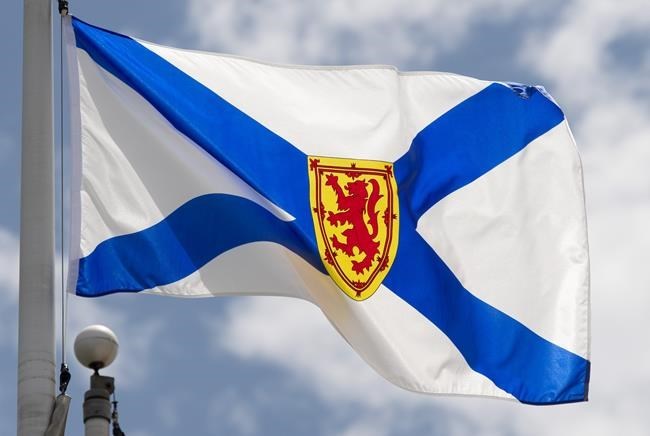PORT HAWKESBURY, N.S. — A massive hydrogen and ammonia plant has been approved in Cape Breton, giving Nova Scotia a leg up in an Atlantic Canadian race to develop green energy for eager German buyers.
Timothy Halman, Nova Scotia's environment minister, this week approved the first phase of EverWind Fuels' plans for hydrogen and ammonia plants in Port Hawkesbury, N.S. The company says its $6-billion project will be the continent's first "industrial-scale" green hydrogen and green ammonia operation and among the first in the world.
EverWind plans to use wind power to create hydrogen and ammonia. That ammonia would be shipped to Germany, where it can be used as fuel to replace natural gas, or converted back into hydrogen.
The Nova Scotia project edges ahead of another high-profile hydrogen and ammonia operation pitched for western Newfoundland and led by John Risley, the billionaire co-founder of Clearwater Seafoods. Risley is a director with World Energy GH2, whose proposed wind-powered hydrogen and ammonia operation is still awaiting environmental approval.
It is also before the province's Supreme Court as the company seeks an injunction against protesters blockading its work site.
Sheila Hinks, an Indigenous fisher, is among dozens of people that have been demonstrating at the site for the past four weeks. Protesters are worried about the project's impact on the delicate ecosystem and say it is being built on Indigenous land. "To us, it's unceded land," Hinks saidin an interview Friday.
The push to kick-start a green energy sector in Atlantic Canada began in earnest last summer when federal Natural Resources Minister Jonathan Wilkinson and German Vice-Chancellor Robert Habeck signed a pact to create a transatlantic hydrogen supply chain between the two countries. Germany is hungry for alternative energy sources to Russian natural gas.
They signed the deal in Stephenville, N.L., where part of World Energy's project would be built.
EverWind's plans include a 300-megawatt hydrogen electrolysis plant and an ammonia production facility near the Strait of Canso. There will also be a large transmission line and a pipeline for transporting liquid ammonia to shipping vessels. EverWind said the Nova Scotia approval puts the company on track to produce and export green ammonia to German buyers by 2025.
The approval came with conditions that Halman said would lessen the project's environmental impact.
In western Newfoundland, the first phase of the company's proposal calls for up to 164 onshore wind turbines to power a hydrogen production facility in Stephenville. Long-term plans call for tripling the project's size. The proposal is awaiting approval from the Newfoundland and Labrador government.
The project has been a source of political turmoil for Liberal Premier Andrew Furey, whose close friend, Brendan Paddick, is among World Energy's directors. News site allNewfoundlandLabrador.com revealed last October that Furey vacationed at Risley's luxury Labrador fishing lodge in 2021, months before the provincial government lifted a long-standing moratorium on wind energy development.
Meanwhile, construction has begun to build access roads and erect a wind-measurement tower near the town of Mainland, N.L., about 65 kilometres west of Stephenville.
Hinks said protesters have been at the site since mid-January, blocking work crews from getting in. Between 50 and 60 people, the majority of whom are Indigenous, take shifts to keep demonstrators at the site 24 hours a day, she said.
Protesters found out through news reports that World Energy had asked the court for an injunction, she said. "I wasn't shocked because we knew there was something coming," Hinks said, adding: "We're here today, bigger and stronger."
World Energy did not comment Friday on the court action, but the company previously said the protests were getting out of hand. Earlier this month, the RCMP said windows were smashed on an excavator, bulldozer and loader in the area, and the company alleges the protesters are to blame.
"We hope the broader community will condemn such illegal activity and work to support the opportunity that the project — and the green energy industry — can bring to the region and the province," World Energy said in a Feb. 1 news release.
This report by The Canadian Press was first published Feb. 10, 2023.
— By Sarah Smellie in St. John's, N.L.
The Canadian Press




